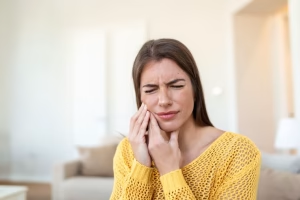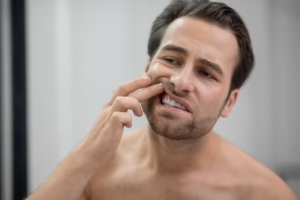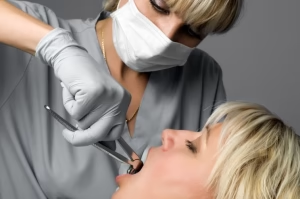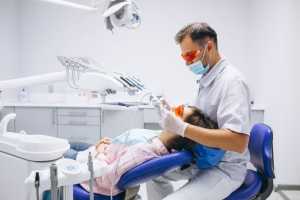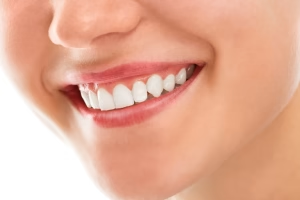5 Main Causes Of Dental Pain, Toothache And Gum Recession
5 January 2018

Not many things are as annoying and debilitating as a painful tooth. Most people attribute toothaches to dental cavity and in lots of cases, this is not far from the truth. However, not all painful oral conditions are caused by cavities, and tooth irritation can be caused by a wide variety of factors.
Most times, if you’re experiencing a toothache, you will book a consultation with your dentist or have a dental procedure. Whenever you’re in doubt – schedule a dental checkup.
Here are top 5 underlying causes of dental pain and some tips on what you can do about them before seeing the dentist.
1. Gum recession
We all know that regular brushing is crucial for dental health. But it is not always about how often we brush that helps prevent oral issues. It is also about how we do it. More often than not, people don’t really pay attention to “how” they brush and floss. Using hard and old toothbrushes, as well as too much pressure on gums and teeth can lead to gum irritation and bleeding.
If this bad practice continues for a long time, you’re facing gum recession. This condition results in even more pain and makes your teeth sensitive to temperature. It is relatively easy to prevent this condition.
Make sure you use soft brushes, specially designed to take care of your sensitive gums and exposed roots, if there are any.
Use toothpaste for sensitive teeth and brush regularly to keep the bacteria away from your tender gums.
2. Worn out enamel
The momentary, sharp pain you experience when drinking hot and cold beverages or eating sweets is most likely caused by worn out enamel. The sensation is similar to receded gums, only this time, the dentine is exposed to the external factors instead of the root of the tooth.
In this case, tooth sensitivity means that the tooth enamel has worn down and the layer where the tooth’s nerves are located (dentine) is exposed and vulnerable.
This can be caused by many factors, but one of them is excessive teeth whitening. To protect the nerves and prevent the pain caused by extreme temperatures, use toothpaste for sensitive teeth.
To prevent the enamel erosion, go easy on soft drinks, keep yourself well hydrated and avoid high sugar intake.
3. Gingivitis and periodontitis
Gingivitis, better known as gum inflammation is a condition that can be easily mistaken for receded gums as it also includes symptoms such as irritation, pain and bleeding.
However, instead of mechanical damage, the cause of gingivitis is the bacteria found in plaque, sticky film that is constantly formed in our teeth and gum line. When gums are inflamed, we experience symptoms such as dull aches, bad breath and gum swelling.
If left untreated, it can progress to periodontitis, a much more serious condition that can cause gum shrinkage and teeth loosening. This destructive form of gingivitis is very common. When you notice blood during brushing, switch to periodontal toothpastes, mouthwashes, gentle gum massages and increased intake of vitamin C.
If none of these help, visit your dentist as soon as possible.
4. A cracked tooth and Dental Pain
A visibly broken tooth is something that most of us take seriously and it’s one of the top reasons to book an emergency appointment.
In some cases, teeth can be slightly cracked or chipped, without us noticing that immediately. The injury can happen while falling, chewing on something hard or in sleep when you grind or clench your teeth.
Even a minor tooth injury can cause a significant amount of pain and seeing a dentist is the only thing you can do to help it go away.
If you experience momentary pain while drinking something cold or hot, or chewing, you can suspect a cracked tooth. If the pain is extreme, it means that the fracture already reached the nerve endings.
If you’re located in the Brisbane and Gold Coast, phone us at MGA Dental and schedule an appointment before your pain gets worse.
5. A decay that needs to be fixed asap
Here is the most common reason for a toothache – the dental caries, widely known as decay or cavities. This condition is something that all people go through sooner or later and the sooner you see the dentist, the better. If you’re feeling pain (especially if the pain starts all of a sudden), this means that the decay has progressed and reached the dentine, the inner layer of the tooth, placed below the enamel.
If the pain becomes sharp, it’s time to see a dentist. Sharp pain points to a decay in the centre of the tooth and the consequences can be quite severe.
If the root of the tooth is affected by the decay and the surrounding tissue gets infected, this will result in tooth abscess, a dangerous bacterial infection that could lead to tissue and tooth loss.


